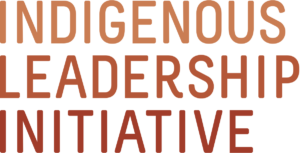U.S. and Canada Call for Supporting Indigenous-led Conservation
By Valérie Courtois
President Biden and Prime Minister Trudeau singled out the leadership of Indigenous Nations when they held their first official meeting this week. Their statement said, “The Prime Minister and the President agreed to be partners in protecting nature, including by supporting Indigenous-led conservation efforts.” And they acknowledged the importance of working with Indigenous Peoples “in advancing climate solutions and protecting nature.”
Indigenous Peoples have been caring for the lands and waters of this continent for millennia. We have honoured our cultural responsibility to the land, even through generations of colonialism. In light of this history, it is powerful to hear the heads of Canada and the United States celebrate Indigenous leadership and recognize Indigenous contributions to the health of the planet and the future of humanity. The forces of colonialism are weakening as our Nations are re-building, setting the stage for a brighter shared future.
The success of Indigenous-led conservation is gaining visibility at the highest levels of government. Leaders realize that partnerships with Indigenous Nations are essential for countries to achieve their climate and biodiversity goals.
Ni Hat'Ni Dene Guardians monitor Thaidene Nëné, one of the largest protected areas in North America. Photo: Pat Kane
Indigenous Nations are leading the most ambitious plans for conserving lands. The Łutsël K’e Dene First Nation, for instance, led the creation of Thaidene Nëné, one of the largest protected areas in North America in 2019. The Dehcho First Nations passed a law in 2018 to create the Edéhzhíe Dehcho Protected Area and National Wildlife Area, spanning 14,249 square kilometres of healthy lands and clean waters in the Northwest Territories. And dozens of other First Nations have proposed Indigenous Protected and Conserved Areas.
Supporting Indigenous leadership is the best and most effective way for Canada to meet its target of protecting 25% of its lands and waters by 2025 and 30% by 2030.
Most of these IPCAs are within the Boreal Forest, which holds 12 percent of the world’s land-based carbon reserves in its deep soils, wetlands, and peatlands. IPCAs ensure this carbon remains safely stored in the ground instead of being released into the atmosphere and intensifying climate change.
Five proposed IPCAs alone will protect more than 8.5 billion tonnes of carbon in the boreal—that’s equivalent to almost 40 years of Canada’s annual industrial greenhouse gas emissions.
Indigenous Nations are sustaining these globally significant lands. Our management is guided by Indigenous law, traditional knowledge, and cultural responsibility. Our stewardship generates good paying jobs and economic opportunities, and it inspires our youth and strengthens our communities.
We take care of the land, and the land takes care of us.
Lands managed by Indigenous Peoples are healthier and more intact, a fact confirmed by countless research initiatives. It is also recognized by a growing number of corporate leaders. And over 50,000 people across Canada have joined the Land Needs Guardians campaign calling for more Guardians on the land.
The Dehcho First Nations Assembly where the Dene law creating the Edéhzhíe Dehcho Protected Area was passed in 2018. Photo: Amos Scott
And Prime Minister Trudeau and President Biden have highlighted Indigenous-led conservation in their first joint statement. Now we look forward to seeing Canada’s commitment reflected in Budget 2021. By making a sustained investment in IPCAs and Guardians programs, Canada can put words into action and meet its climate and conservation targets.
We are on the cusp of a new era. The President and Prime Minister’s statement came on the same day Congresswoman Deb Haaland’s hearing to become the first Indigenous person to serve as U.S. Secretary of the Interior. From the Zuni Nation to the Łutsël K’e Dene First Nation, from Washington, D.C to Ottawa, Indigenous Peoples are stepping to the forefront and helping solve the challenges of our time.
Indigenous-led conservation is a gift to the world. And now this gift is being received with increasing respect and recognition.



